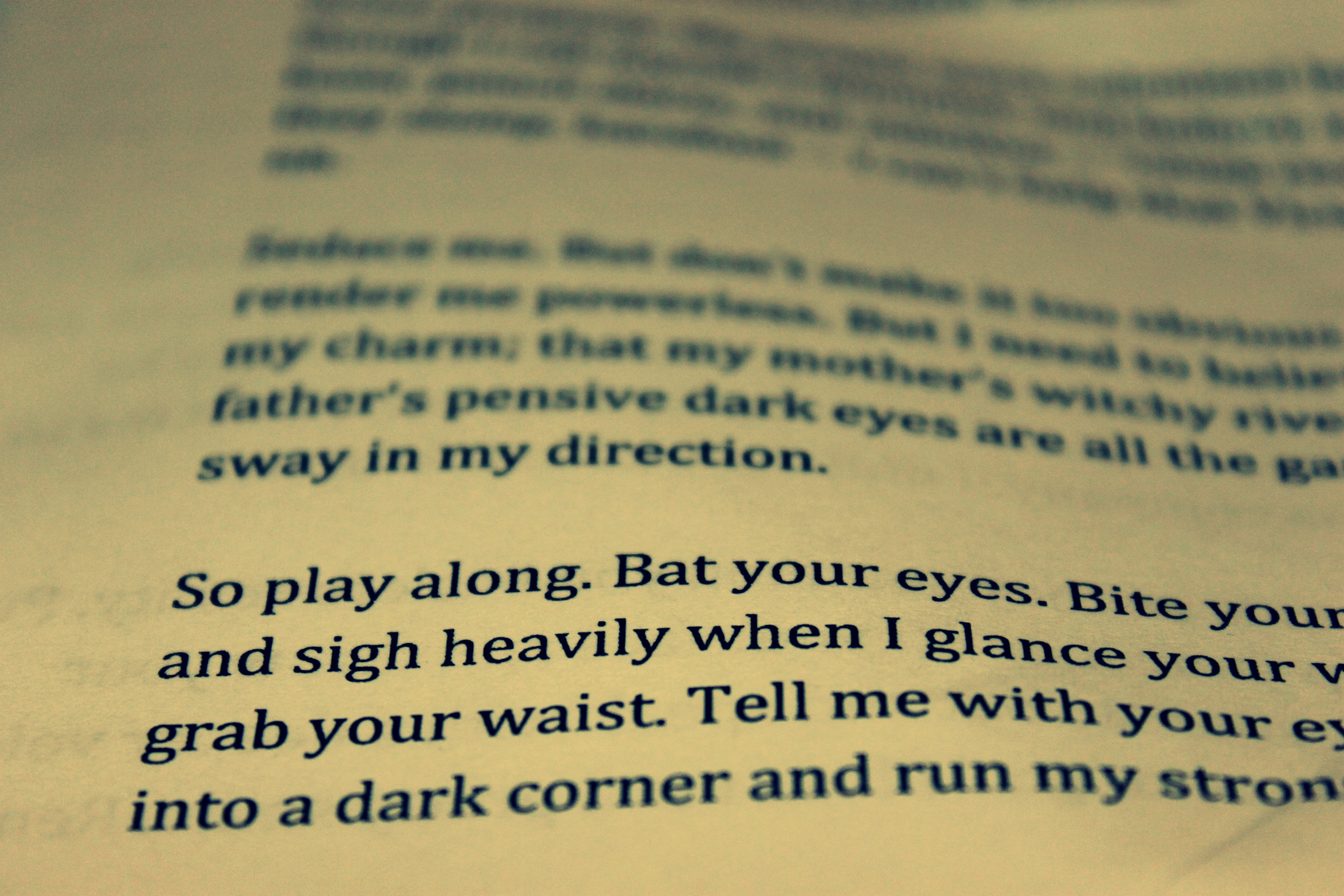“We Work on “Gender and Sexuality” Issues (But We’re Not a Feminist Organization)”
I recently spent some time in Windhoek, Namibia as part of Africans for Africa, my 6-month long volunteer project training women’s and LGBTI organizations all across Southern Africa in new media communications. To make the most of my two-week stay, I decided to look up local women-run organizations in order to introduce myself and in hopes of learning more about Namibia’s non-profit/social justice landscape.
After an hour or so of web researching gender and sexuality issues in Namibia, I had compiled an inspiring list of organizations that primarily served women in a variety of ways, including combating homophobia, educating girls, advocating for survivors of domestic violence, children with disabilities, and so much more.
As I read the founders’ stories, many of them survivors of some form of trauma, called to political action by some personal circumstance, I “mmmn”-ed out loud, soaked in what felt like a familiar brand of afrofeminism, the kind I’d become accustomed to being raised by a child of war, the kind that held its breath through resistance, generation after generation, with the dim hope that the work and sacrifice would afford their daughters the privilege of being able to breathe more freely.
Phrases like “fight against oppression”, “promote gender equality”, “resist patriarchy”, and “empower women” could be found in almost all the mission statements, yet, despite the parallel goals and shared context, the words “feminist” or “feminism” were nowhere to be found. Â So far, in my travels, the word feminism has proven to be as taboo (and as divisive) as it gets. Ironically, nothing creates quite awkward a silence as someone perceived to be “pushing a feminist agenda” (or, my favorite, “man-hating”) in an African women’s circle.
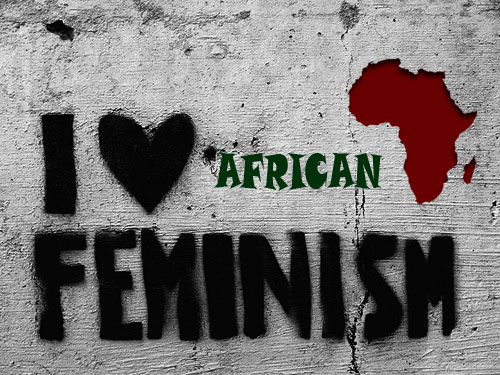
I’ve certainly met my share of African feminist individuals — they’re the crazy ones that would drop the F-bomb (“Feminism”) in the middle of a discussion (and embrace the consequences, while describing the chaos as a series of “learning moments”. (Note: I say this, fondly.)
On the flip side, many of the organizations I’ve met working on combating gender stereotypes or gender-based violence are adamantly against using the word, “Feminism”, in their work, even if some of the leadership identify as feminists). Some of the resistance stems from the good sense to avoid alienating many of the women they serve, a scenario I myself can relate to; I received way more responses (and invitations) when I described my tech training as equipping African women (vs. African feminist organizations), so I made the switch. My mission, after all, is to make sure more women are skilled at using media for advocacy. Thus, for my purposes, I really don’t care whether or not these women identify as feminists or not.
However, besides tactical reasons similar to the scenario above, some of the pushback against using the F-word also stems from negative perceptions feminism. Unfortunately, I’ve met one too many feminists who exclusively blame “ignorance” or “patriarchy” for the bad PR. While I agree that some of this is certainly at play, I quite frankly find it ineffective (and self-righteous) to continually blame an audience for bad messaging. Feminism isn’t always the problem; sometimes, feminists who use feminism to alienate (vs. engage) are the greatest barrier to engaging women in what’s arguably one of the most powerful movements of our time.
Queer Nigerian Boi Seeks African Feminist Organizations; Must Be Open-Minded (i.e. Love the Gays)
I personally have felt excluded from so called “inclusive feminist spaces” based on my disdain for academic jargon, my love of hip hop music, the task of constantly having to fight against assumed heterosexuality, and the frustration of hearing even allies conflate my gender presentation as a tom boi and my sexuality as the same issue. Like religion, at its core feminism is good; but when preached as a doctrine in the way it’s quite often done (especially at conference spaces), when policed in the way that it frequently is by so-called “real” feminists, it can feel more like dogma, a set of rules and judgments, rather than loose set of principles, heavily strengthened by an appreciation of the “gray”, which can guide all of us to better caring for ourselves and for our communities.
Given the tensions that exist within and around (African) feminism, I was pleasantly surprised to discover (and get to know) three amazing organizations that have found a way to strike a balance between engaging all kinds of women from where they are and empowering women who already identify as feminists to “spread the good word”; who welcomed me whole, and didn’t reduce me to being the “gay one” in the group. It was so encouraging to meet so many open-minded African women, some LGBTI, some not, who united around a shared commitment to (all) women’s empowerment.
I’ve listed them here in no particular order. And, luckily for you, because I spent quite a bit of time training a number of their members in new media for branding and visibility, so they’re pretty active on Facebook. Like them :)
Young Feminist Movement in Namibia (Y-Fem)
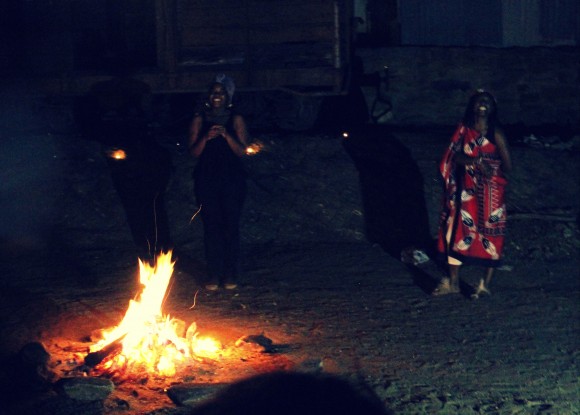 Y-Fem’s mission is to nurture the next generation of feminist leadership. Pow! These inspiring young women I was privileged to spend two weeks with in Namibia describe themselves as “an organization that creates space for passionate, stylish, and fashionable young Namibian women and allies.” Ooh la la — sign me up! This is exactly what we need — an organization that isn’t afraid to make feminism cool, fashionable. During my sessions with them, it came up, over and over again, that they were committed to making sure Y-Fem appealed to the ‘every day’ girl, not just women’s and gender studies major. Incidentally, I got to help them prepare for their first major event, which was an informal social gathering intended to create an awareness of feminist and women’s issues through the use of poetry by both established and aspiring poets. They pulled that event off like pros; I arrived mid-way through it to find 40+ people gathered around a blazing fire as a woman chanted and sang about her love for African women. Namibia’s women’s movement is in good hands if Y-Fem has anything to say about it. Like them on Facebook
Y-Fem’s mission is to nurture the next generation of feminist leadership. Pow! These inspiring young women I was privileged to spend two weeks with in Namibia describe themselves as “an organization that creates space for passionate, stylish, and fashionable young Namibian women and allies.” Ooh la la — sign me up! This is exactly what we need — an organization that isn’t afraid to make feminism cool, fashionable. During my sessions with them, it came up, over and over again, that they were committed to making sure Y-Fem appealed to the ‘every day’ girl, not just women’s and gender studies major. Incidentally, I got to help them prepare for their first major event, which was an informal social gathering intended to create an awareness of feminist and women’s issues through the use of poetry by both established and aspiring poets. They pulled that event off like pros; I arrived mid-way through it to find 40+ people gathered around a blazing fire as a woman chanted and sang about her love for African women. Namibia’s women’s movement is in good hands if Y-Fem has anything to say about it. Like them on Facebook
Women’s Leadership Center
 WLC is a feminist organization that promotes women’s writing and other forms of personal and creative expression as a form of resistance to oppression embedded in patriarchal cultures and society, and aims to develop indigenous feminist activism in Namibia. (Wow!) They’ve published several anthologies of stories, poetry, and photography produced for and by women living in rural areas, and routinely host writing workshops in order to develop interest in writing both as a tool for archiving African women’s stories and advocating for equal rights and access. Before I left, the director of the program, Liz Frank, a feminist scholar herself, gave me about five books to read, including “Between Yesterday and Tomorrow” and “We Must Choose Life”, both writings of Namibian women on gender, culture, violence, and HIV/AIDS. As someone whose work is all about women telling their stories, discovering WLC was such a treat. Visit their website.
WLC is a feminist organization that promotes women’s writing and other forms of personal and creative expression as a form of resistance to oppression embedded in patriarchal cultures and society, and aims to develop indigenous feminist activism in Namibia. (Wow!) They’ve published several anthologies of stories, poetry, and photography produced for and by women living in rural areas, and routinely host writing workshops in order to develop interest in writing both as a tool for archiving African women’s stories and advocating for equal rights and access. Before I left, the director of the program, Liz Frank, a feminist scholar herself, gave me about five books to read, including “Between Yesterday and Tomorrow” and “We Must Choose Life”, both writings of Namibian women on gender, culture, violence, and HIV/AIDS. As someone whose work is all about women telling their stories, discovering WLC was such a treat. Visit their website.
Sister Namibia
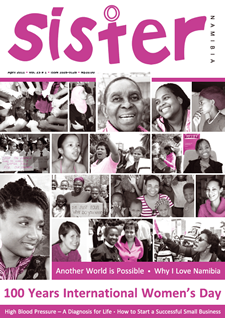 And, last but not least, Sister Namibia is a feminist, women’s rights organisation based in Namibia that uses media to raise awareness on women’s rights issues in the country and region. An African feminist media organization? It sounded too good to be true when I stumbled across their website. I hadn’t imagined that I’d receive a response as quickly as I did (yay African hospitality), that the director would invite me to come spend an afternoon with them in their office, nor that this “office” would be an actual building the organization owned. When I stepped into their small bungalow, I was blown away by the display table in the entryway that held past issues of Sister Namibia’s print magazine, “Sister”, and the wall-to-wall covering of bookshelves filled with books about African women, feminism, gender, sexuality–the whole shebang. This organization doesn’t need to “create space” for women (or feminists); they already have one. Their physical space, which I’ve come to fondly call my favorite African feminist temple, serves as both a library and a meeting space for local students, activists, and community members. They rock. Love them on Facebook.
And, last but not least, Sister Namibia is a feminist, women’s rights organisation based in Namibia that uses media to raise awareness on women’s rights issues in the country and region. An African feminist media organization? It sounded too good to be true when I stumbled across their website. I hadn’t imagined that I’d receive a response as quickly as I did (yay African hospitality), that the director would invite me to come spend an afternoon with them in their office, nor that this “office” would be an actual building the organization owned. When I stepped into their small bungalow, I was blown away by the display table in the entryway that held past issues of Sister Namibia’s print magazine, “Sister”, and the wall-to-wall covering of bookshelves filled with books about African women, feminism, gender, sexuality–the whole shebang. This organization doesn’t need to “create space” for women (or feminists); they already have one. Their physical space, which I’ve come to fondly call my favorite African feminist temple, serves as both a library and a meeting space for local students, activists, and community members. They rock. Love them on Facebook.
What other self-identified African feminist organizations exist on the continent? I’m sure they’re lots. Please feel free to recommend them. Have you come across organizations that don’t explicitly identify as feminist but practice feminist principles? Should African women’s organizations necessarily adopt the feminist label? Why/why not?Â
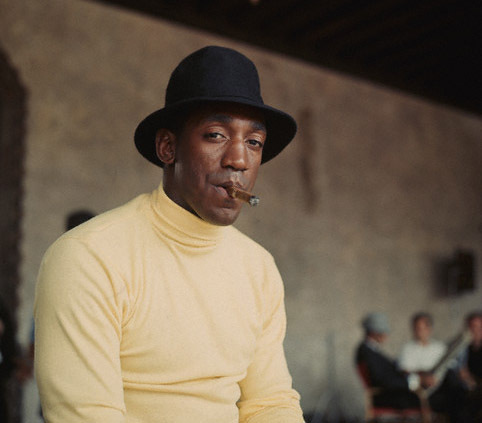

 Y-Fem’s mission is to nurture the next generation of feminist leadership. Pow! These inspiring young women I was privileged to spend two weeks with in Namibia describe themselves as “an organization that creates space for passionate, stylish, and fashionable young Namibian women and allies.” Ooh la la — sign me up! This is exactly what we need — an organization that isn’t afraid to make feminism cool, fashionable. During my sessions with them, it came up, over and over again, that they were committed to making sure Y-Fem appealed to the ‘every day’ girl, not just women’s and gender studies major. Incidentally, I got to help them prepare for their first major event, which was an informal social gathering intended to create an awareness of feminist and women’s issues through the use of poetry by both established and aspiring poets. They pulled that event off like pros; I arrived mid-way through it to find 40+ people gathered around a blazing fire as a woman chanted and sang about her love for African women. Namibia’s women’s movement is in good hands if Y-Fem has anything to say about it.Â
Y-Fem’s mission is to nurture the next generation of feminist leadership. Pow! These inspiring young women I was privileged to spend two weeks with in Namibia describe themselves as “an organization that creates space for passionate, stylish, and fashionable young Namibian women and allies.” Ooh la la — sign me up! This is exactly what we need — an organization that isn’t afraid to make feminism cool, fashionable. During my sessions with them, it came up, over and over again, that they were committed to making sure Y-Fem appealed to the ‘every day’ girl, not just women’s and gender studies major. Incidentally, I got to help them prepare for their first major event, which was an informal social gathering intended to create an awareness of feminist and women’s issues through the use of poetry by both established and aspiring poets. They pulled that event off like pros; I arrived mid-way through it to find 40+ people gathered around a blazing fire as a woman chanted and sang about her love for African women. Namibia’s women’s movement is in good hands if Y-Fem has anything to say about it. 

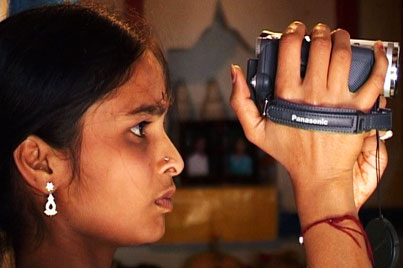

 The
The 
